|
South West Asian hornet action teams are launching an Asian Hornet Spring Watch publicity campaign over Easter. They are calling on the public to get involved.
Somerset’s AHAT coordinator Lynne Ingram said: “Lockdown means that people will be spending more time in their gardens and on walks around their neighbourhood this Easter. “We would like people to look for Asian hornets on flowers such as camellias, trees that ooze sap and in sheltered spots like sheds and porches while keeping within government guidelines in relation to Covid-19.” Asian hornets have distinctive orange faces and yellow tipped legs and are smaller than the bright yellow striped European hornet. “If anyone sees an insect they think is an Asian hornet, check it out on the Asian Hornet Watch app which has an identification guide and lets you send in your sightings.” Beekeepers and conservationists hope to mobilise support from all over the region to prevent the destructive insects getting established in the UK where they will decimate populations of pollinating insects and honeybees. “Given the many pressures on our precious pollinators, including climate change, habitat destruction and pesticide use, it’s vital we do all we can to support them by reporting sightings.” Somerset Beekeepers’ Association has many useful ID materials on its website including a children’s colouring-in sheet. https://www.somersetbeekeepers.org.uk/resources.html Asian hornets are a notifiable invasive species and should be reported immediately, preferably with a photo using:
Ends Notes to editors: Asian hornets (Vespa velutina nigrithorax) are slightly smaller than native European hornets and look like large black wasps with an orange face and yellow legs:
A single Asian hornet can kill 50 bees a day, with a nest containing up to 6,000 workers and up to 350 queens. In Jersey, France and large areas of Western Europe they are stripping the environment bare of insects before moving on to prey on managed honeybee colonies. Asian hornets are a notifiable invasive species and should be reported immediately with photo using:
Somerset BKA's Asian hornet action team co-ordinator Lynne Ingram is urging us all to start monitoring for Asian hornets:
"We're approaching the time when Asian hornet queens will be emerging from hibernation – when the temperature is consistently reaching 13 deg C – and so we need to be monitoring for their presence. We don’t know if there are any Asian hornet queens over-wintering in the UK this year, or whether any mated queens will make their way into the UK post-hibernation. But we need to be prepared. Monitoring traps We strongly recommend the use of monitoring stations, rather than killing traps. This allows us to get the evidence of Asian hornets that we need, without killing our native beneficial insects, in particular European hornets. Asian hornet queens will be searching for sugary foods to build up their energy, not preying on your bees. This means that all monitoring stations need to be positioned where you cannot help but see them and where you can easily check them daily - e.g. outside the kitchen window, or in a sunny spot in your garden. All beneficial insects must be released from monitoring stations daily. From mid-May Asian hornet queens will be mainly in their nests and so monitoring stations can be removed. We are recommending the adaptation of Thorne's traps to include the wick stations inside. This allows wasps and small flies to escape. (See photos above). Liquid bait Use Suterra (now sold as Trappit wasp attractant). Get this from your AHAT Team leader if restrictions allow (keep yourself and others safe and comply with government guidelines) or buy online (Pestfix.co.uk sells smaller bottles). If you cannot get it due to current restrictions try one of these French recipes: • Dark beer mixed with 25ml strawberry dessert sauce and 25ml orange liqueur • 350ml sweet white wine (or white wine sweetened with sugar) + 20-30ml mint syrup Please also observe any flowers where Asian hornet queens may be feeding. Any trees that may be oozing sap are also very attractive to queens in Spring. Being confined to our homes at the moment gives us the ideal opportunity to spend time monitoring for Asian hornets. Summer From the August onwards, Asian hornet workers may be found preying on your bees, so monitoring stations may also be hung in your apiaries. Again, we need to be monitoring regularly so that we protect our beneficial insects, and so that we have live samples that could be tracked if necessary. Please register your monitoring stations in apiaries on BeeBase. What to use • Monitoring stations as above • Open bait stations – plastic tray with screwed up kitchen roll, a stone and your liquid bait. Ideally protect these from rain - on a bird table Autumn In the Autumn Asian hornet workers can be observed on fallen and growing fruit and on ivy plants, where they will often be seen taking prey. Males and new queens will be produced in the late Autumn and males can be seen feeding on flowers. This is a crucial time to spot Asian Hornets as it is important to find any nests before the queens emerge and go into hibernation. Observe plants, fruit and also around your apiary. If you think you have seen an Asian Hornet: • Get a photo (or sample) • If you are not sure or are struggling to get evidence contact your local Asian Hornet Action Team – asianhornet@somersetbeekeepers.org.uk • If you are sure and you have evidence, then report on the Asian Hornet Watch App or on alertnonnative@ceh.ac.uk – and to your local AHAT. Due to current restrictions please make sure that you keep yourself safe and comply with government guidelines. Check BBKA website for updates on how this relates to beekeepers." Dorset beekeeper Chris Slade is blogging about Lecture Day and declares that in spite of a long journey through Storm Dennis "It was worth it though and I’m glad I went."
Read all about it here: https://chrissladesbeeblog.wordpress.com/ We hope all who attended enjoyed the day and look forward to evaluating the online survey feedback. The Annual Lecture Day on February 15 is FULLY BOOKED. It's great that so many of you are coming to this event and we're sorry to disappoint anyone who hasn't bought a ticket yet.
After Lecture Day we will review arrangements to see if we can accommodate more people in future years. If you've bought a ticket but can't make it - let someone else come in your place
And remember to bring your ticket - either a prepaid paper ticket or an Eventbrite ticket - without it you won't be admitted! Somerset BKA’s new education support group, made up of four Master Beekeepers, has launched with a flying start.
There’s been an overwhelming response to news of our first county-wide queen rearing course, ‘How to rear your own queens when you only have two or three hives’. Within hours of sending an email to members the course was three times over-subscribed. Currently tutors are looking at additional dates and will inform anyone who has registered an interest in due course. Also, the training day later this month for members interested in taking the BBKA's honey bee health certificate is full. Meanwhile, the group publishes articles in SBKA’s newsletter and on the website. Thank you to all SBKA members who completed our annual end-of-season survey.
The findings reveal that on average members have more colonies at the end of the season than at the beginning and most enjoyed an excellent harvest. Summary: On average a member has five colonies going into winter (one more than in the Spring), harvested up to 50 lbs per productive colony and 175 lbs in total. Based on the findings provided by the 222 members who completed the online questionnaire, the total membership harvested more than 60 tonnes or 134,000 lbs from nearly 4,250 colonies.
For a detailed breakdown of responses to each question, take a look at the January newsletter. This is the first in a series of educationally-based articles written by Master Beekeeper Tricia Nelson from Quantock Division. The end of one beekeeping season and the start of another; time to reflect on what happened this year and what you want to do next. What went well for your bees? What didn’t? What might be worth trying next year? So, what sticks out in my recollections of the year which might be of interest to you? Driving bees We have all learned that bees walk uphill into dark spaces. Hence smoking swarms up into skeps, tucking your trousers in your socks and covering your wrists so they don’t walk up your trousers and sleeves. Some of us have shaken a swarm out onto a sheet arranged over a sloping board leading up to a new hive and watched them slowly processing into the hive and how they surge up and in once the queen enters. However, seeing exactly the same behaviour in response to a rhythmic and persistent tapping on the sides of the skep with no smoke used at all was extraordinary. It was so quick, almost instantaneous. I hope you enjoy the videos and the photos. Saving the brood comb Equipment needed:
I thought this was an extremely useful technique to learn, very difficult in the hot conditions facing David during his demo, but particularly useful if you have do a cut out when retrieving a swarm, so perhaps it is worth keeping a few strung frames, a flat board and a knife on standby for just such occasions!
At the start of Asian hornet week (Sept 9-15) Somerset Beekeepers Association has published a suite of Asian hornet resources we've produced and are happy to share.
Meanwhile our Asian hornet actions teams are busy following up on reports from local people. For example, in the Minehead and Exmoor area there have been several unconfirmed sightings which the local AHAT is investigating. Our Asian hornet roadshow rolls into Taunton's Farmers Market on Thursday & Somerset County Show on September 21-22. The NBU found and destroyed an Asian hornet nest in Tamworth, Staffordshire last week. In Jersey they have caught 69 queens and discovered 54 nests so far this year. While here in Somerset we haven't had a confirmed sighting yet but fear it is just a question of time. If you spot an Asian hornet, perhaps feeding on flowering ivy, take a photo and report through the Asian Hornet Watch app or alertnonnative@ceh.ac.uk. If you need some help, contact us direct asianhornet@somersetbeekeepers.org.uk Anne Rowberry, Somerset AHAT member and BBKA Vice Chair writes:
"An Asian hornet sighting was confirmed in the Tamworth area of Staffordshire on September 2, 2019. This is the first report since July, when a single hornet was confirmed in New Milton, Hampshire. In each case they were spotted and reported by a member of the public. Since 2016, there have been a total of 15 confirmed sightings of the Asian hornet in England and six nests have been destroyed. Nine of these sightings occurred in 2018; an individual hornet in Lancashire (April) and Hull, three in Cornwall, two in Hampshire, one in Surrey (all September) and one in Kent (October). The risk of an active Asian hornet nest being found in the UK is negligible during the colder winter months, but higher during the summer. Asian hornets have already been spotted this year in countries close to the UK (France and Jersey) and a risk remains at all times of year of accidentally transporting an Asian hornet when returning to the UK from abroad. It is crucial you report any possible sightings so our experts can take quick and effective action to eradicate Asian hornets." Asian hornets are a notifiable invasive species and should be reported immediately, preferably with a photo: Asian Hornet Watch app for iPhone Asian Hornet Watch app for Android or asianhornet@somersetbeekeepers.org.uk the online recording form http://www.brc.ac.uk/risc/alert.php?species=asian_hornet alertnonnative@ceh.ac.uk Congratulations to Mark and Christine Gullick from Burnham Division who were awarded the Bronze Bee for winning the most points at Bristol’s Bee and Pollination Festival on Saturday.
They beat extremely tough competition to scoop seven firsts, five seconds, three thirds and one highly commended. Next stop: the National Honey Show! |
Archives
December 2023
Categories
All
|
Somerset Beekeepers Association Charity © 2021 Registered CIO Charity 1206483
Affiliated to the British Beekeepers Association
Click here to view our Privacy Policy
Affiliated to the British Beekeepers Association
Click here to view our Privacy Policy
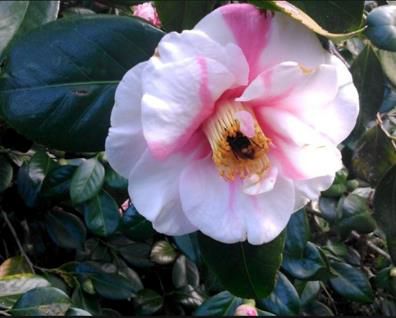

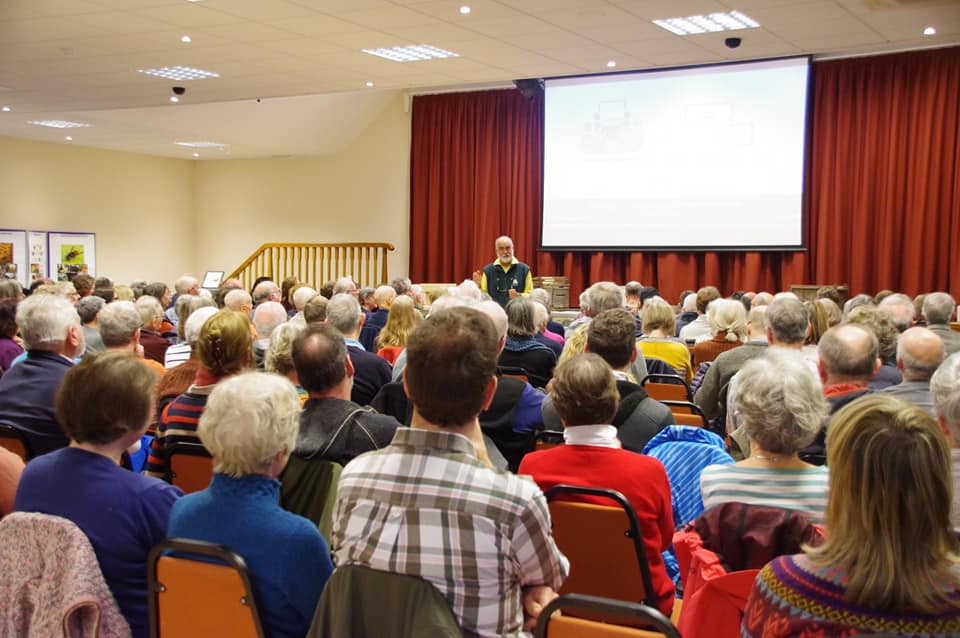
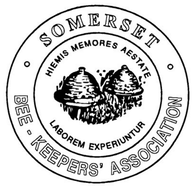
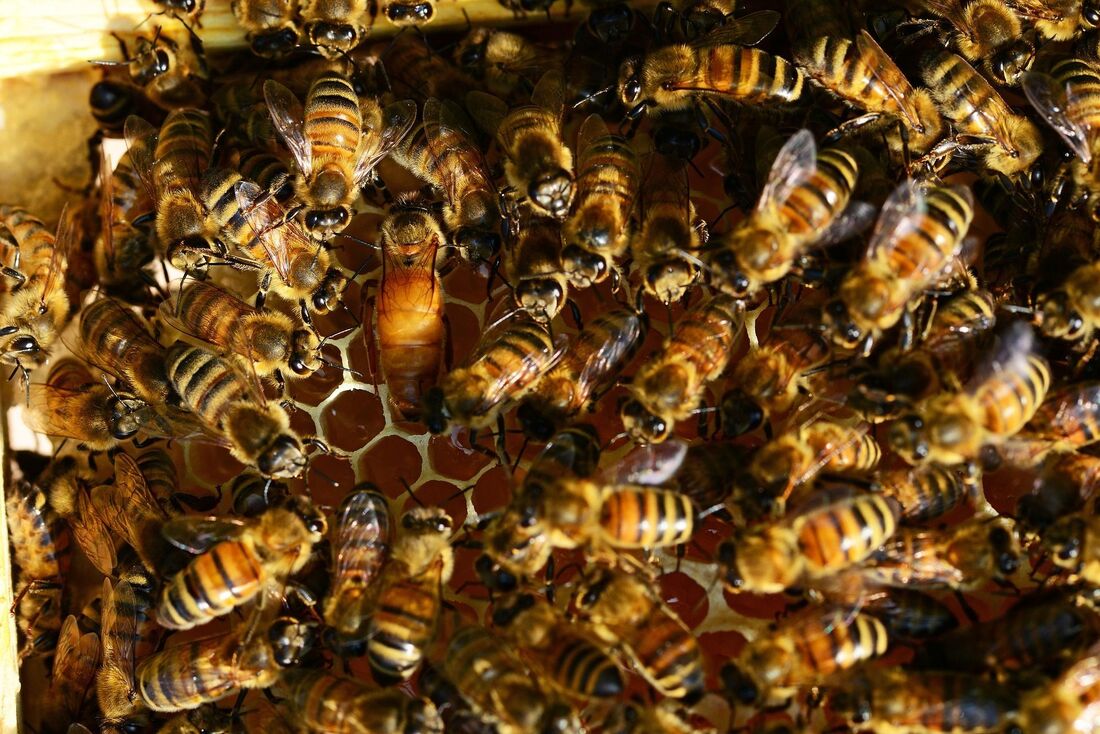
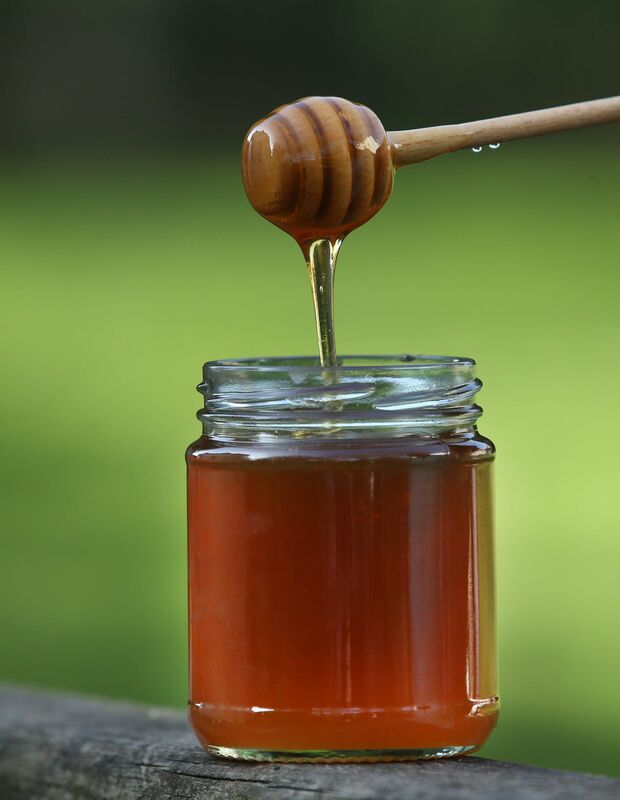
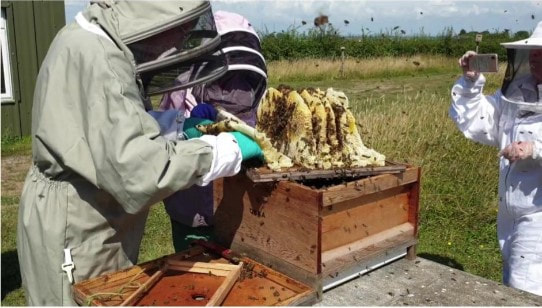
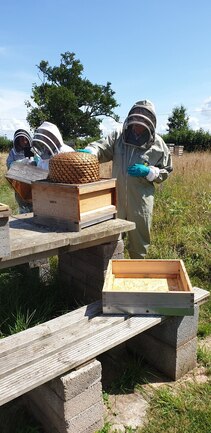
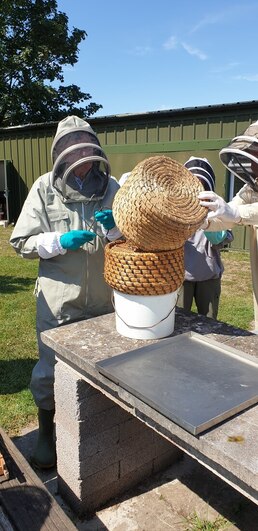
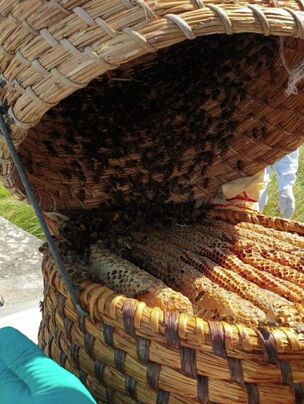
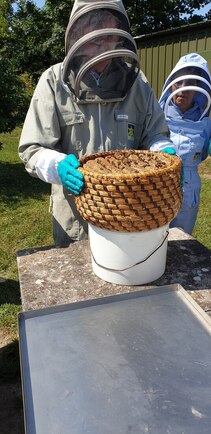
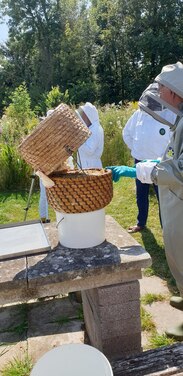
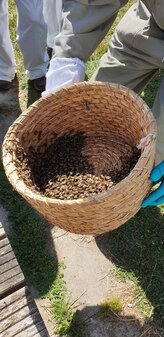
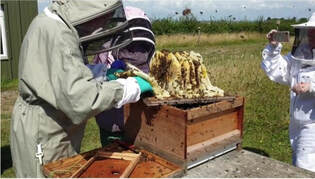
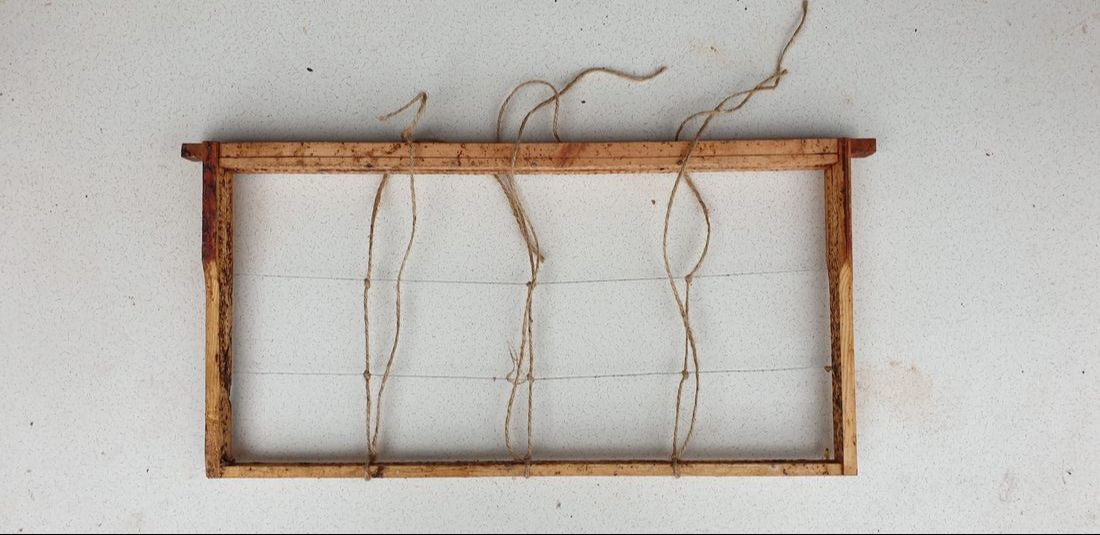
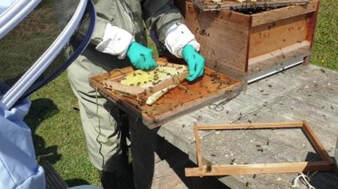
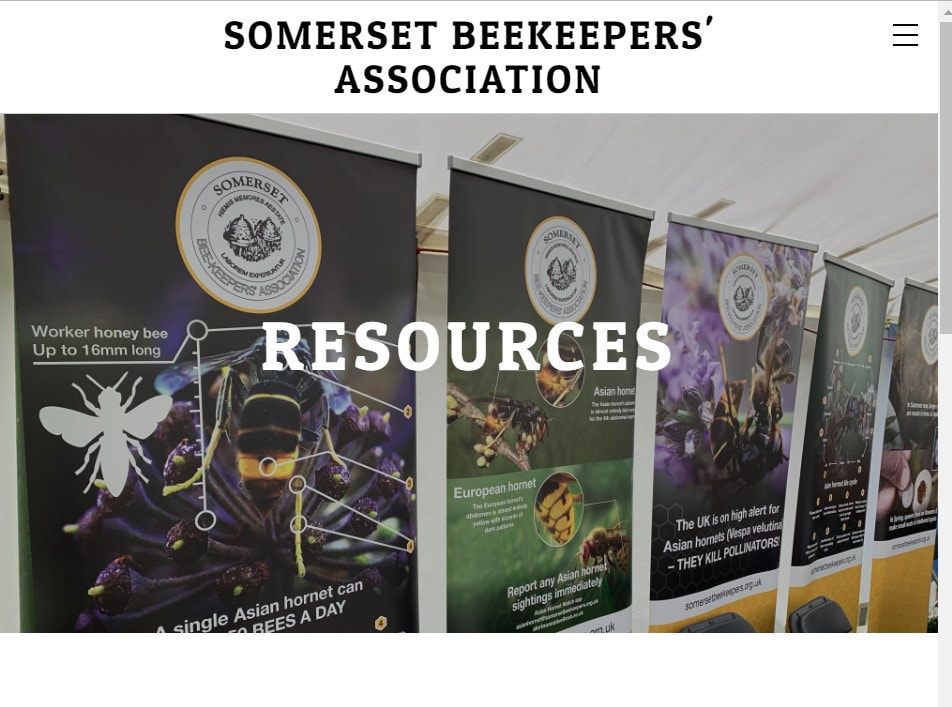
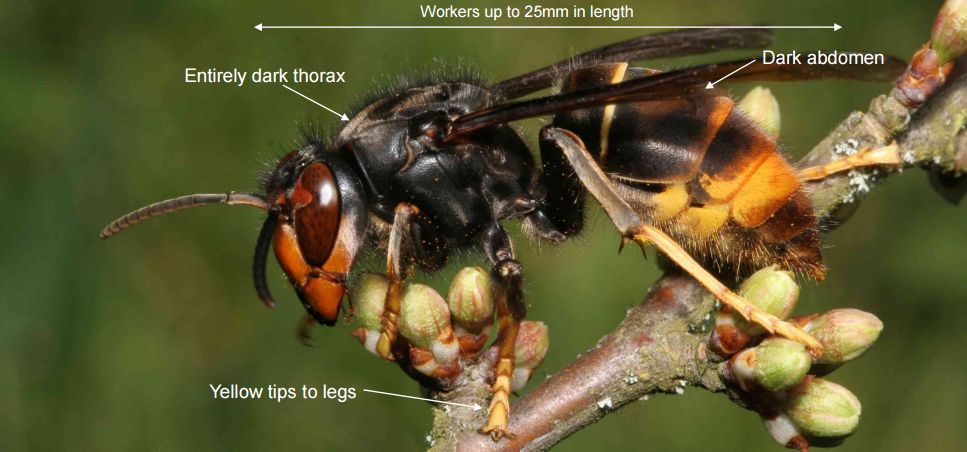
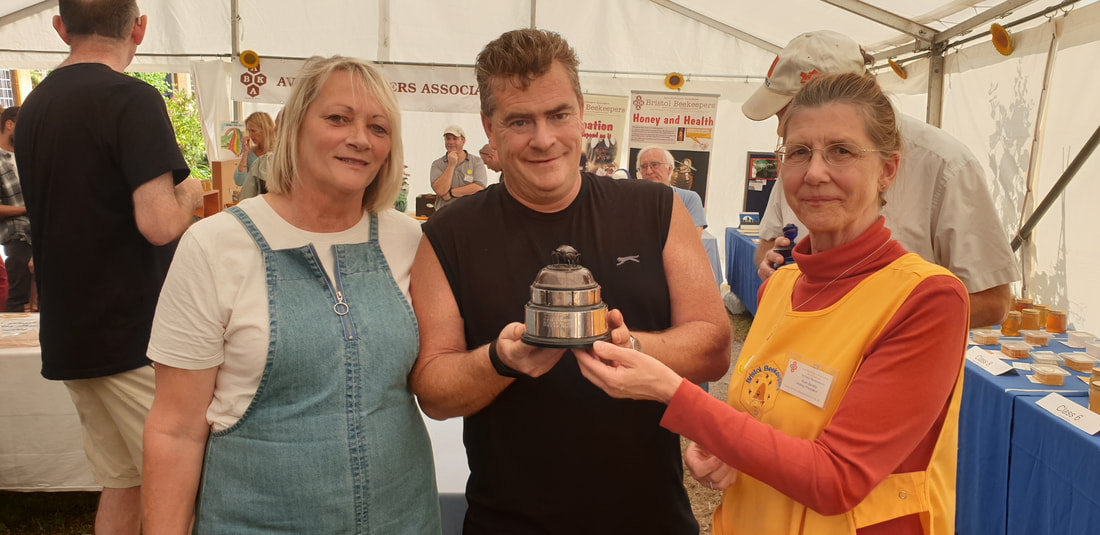
 RSS Feed
RSS Feed
